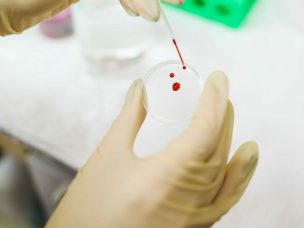Sickle cell disease (SCD) is an inherited hemoglobinopathy that causes decreased life expectancy and acute and chronic pain. As a disease that predominately affects Black patients, SCD is also strongly tied to racism and health inequities. Analyzing the various ways that stigma affects Black patients could vastly improve SCD outcomes.
This systematic review identified four domains of SCD stigma. The first, “social consequences of stigma,” refers to the negative reactions that SCD patients face when disclosing their diagnosis to family, friends, and peers.
These negative reactions include status loss, discrediting of pain, and pity, all stemming from a lack of education on SCD. Some patients reported a loss of employment and health insurance after disclosing their diagnosis, subjecting them to further marginalization.
The second domain identifies “effects of stigma on psychological well-being.” This domain examines the harmful psychological consequences of stigma, including depression, anxiety, heightened stress, and suicidal ideation. These factors may, in turn, worsen health outcomes, both physically and mentally.
The third domain, “effects of stigma on physiological well-being,” refers to the lower healthcare quality faced by stigmatized patients. Many patients with SCD report being stigmatized as “drug-seeking” or exaggerating their pain and face delays in care as a result. This dismissal can also lead to maladaptive coping strategies, which further worsen SCD outcomes.
The fourth and final domain identified by the authors is “impacts of stigma on patient-provider relationships and care-seeking behaviors.” Patients with SCD reporting stigma-based discrimination were less likely to adhere to treatment plans, as they did not trust their healthcare providers. These patients are also more likely to delay treatment or attempt to treat their symptoms at home.
These domains suggest how we can achieve more positive SCD outcomes. Most importantly, healthcare providers must be trained to recognize their own biases, and anti-racist policies should be enacted throughout the SCD care process. It may also be beneficial to provide mental health support for patients with SCD to help them cope with the effects of stigmatization [1].
Source:
[1] Bulgin, D., Tanabe, P., & Jenerette, C. (2018). Stigma of Sickle Cell Disease: A Systematic Review. Issues in Mental Health Nursing, 39(8), 675–686. https://doi.org/10.1080/01612840.2018.1443530










